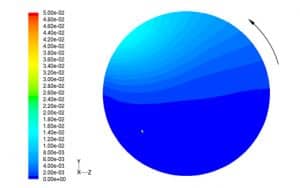“Regenerative fuel gases” like hydrogen generated through electrolyte processes constitute new product offerings in transport and trade. They create new material and energy flows and alter the product portfolio of the energy industry. Both materials and energy are traded and distributed. In Germany, these transactions require metering devices that have undergone official calibration, in order to allow for accounting and billing.
Two-hundred years of experience with hydrogen- and methane-rich fuel gases suggest that the energy industry’s proven metering technologies will be adapted to suit quantity meters that require official calibration and measure “regenerative gases” (especially, hydrogen). But despite numerous past experiences with hydrogen as the major content of fuel gases, there are some new framework conditions to consider: One of them is that today’s gas infrastructures are operated at much higher pressures than they used to be – in natural gas grids with up to 100 bar of gauge pressure.
Metering systems to satisfy calibration requirements
A system that requires official calibration for metering gas with amounts of H2 could consist of as little as a single gas meter which complies with PTB rule TR-G 19 “Gas meters” [1]. In principle, it would be possible to use approved natural gas meters based on any kind of technology, as long as the content of hydrogen was XH2 ≤ 5 %. If the share is higher but below or equal 10 %, the manufacturer needs to provide an additional certificate stating that the device is fit for purpose.
Values above 10 % require a certificate of non-objection by the German National Metrology Institute (PTB). The appropriate meters for pure hydrogen would be Coriolis type if they are designed for the relevant pressure range. The PTB allows the use of rotary piston meters, provided that the manufacturer declares them suitable for the task.
…
Control level and metering technology requiring official calibration
Process-related requirements
…
Conclusion
The trade and transportation of regenerative fuel gases like hydrogen in the energy industry have prompted a number of metrological questions. Technical rules have meanwhile begun to state on paper the requirements for metering technology that requires official calibration, in order to give planers tried and proven spec recommendations. Recognized metrological methods from the energy industry were adapted to fit hydrogen metering. A similar approach …
Literature
[1] …
Author:
Dr. Klaus Steiner, Erdgas & Verwandtes, Bochum




























0 Comments